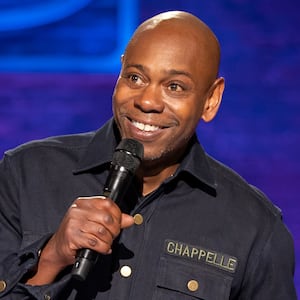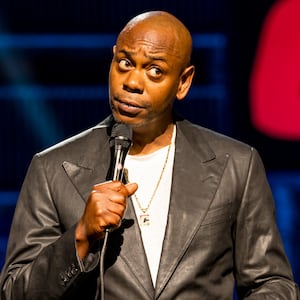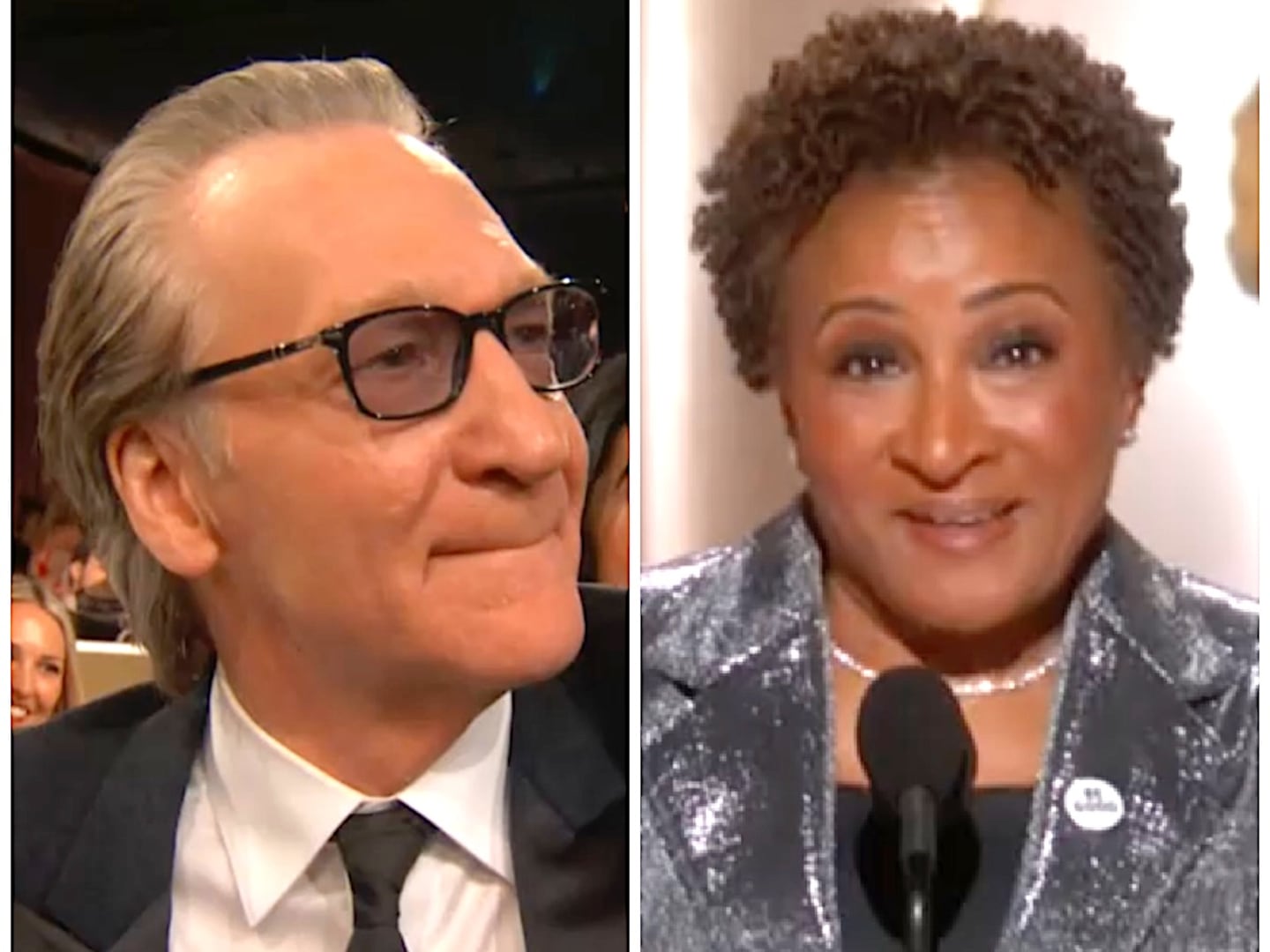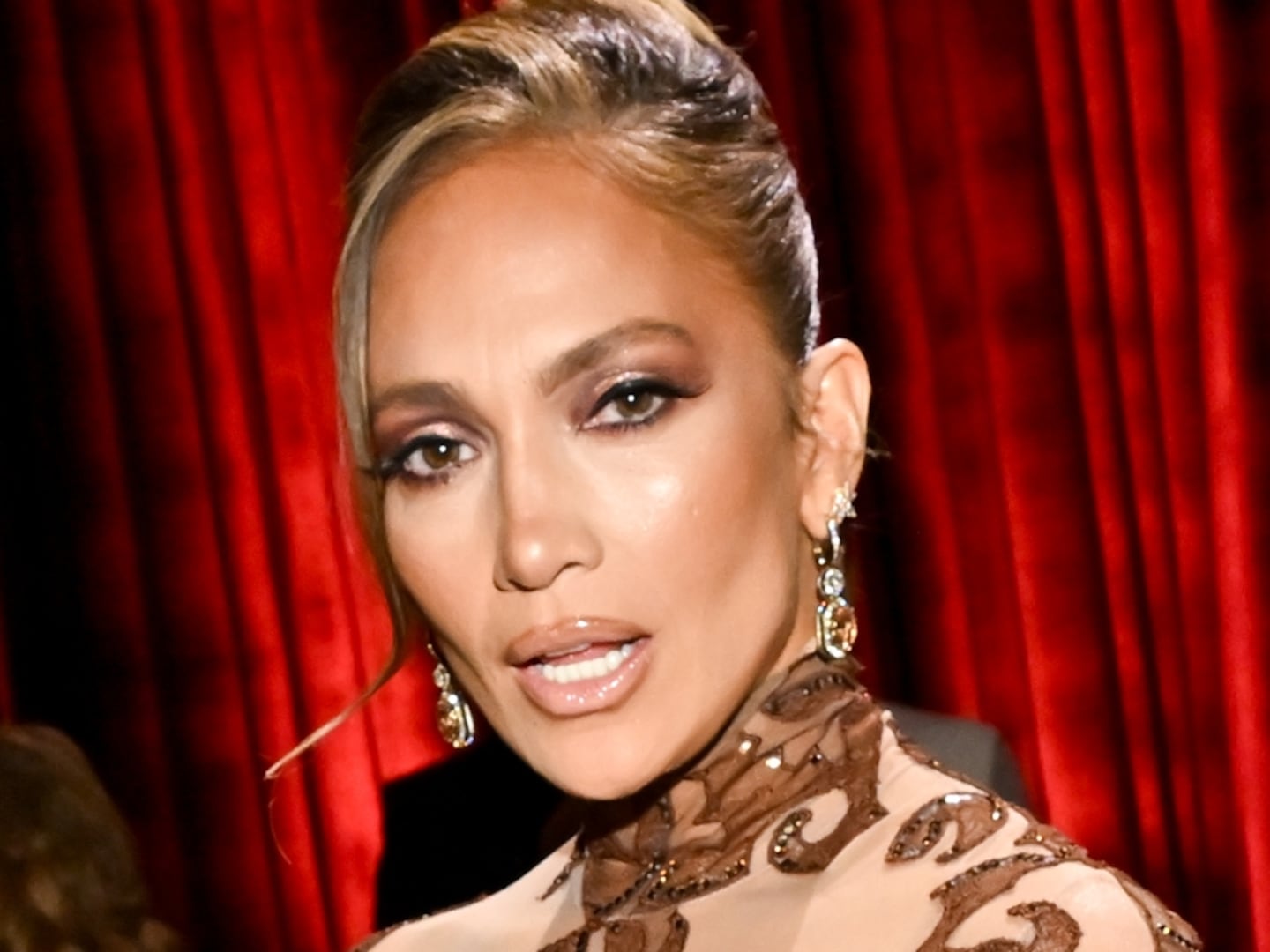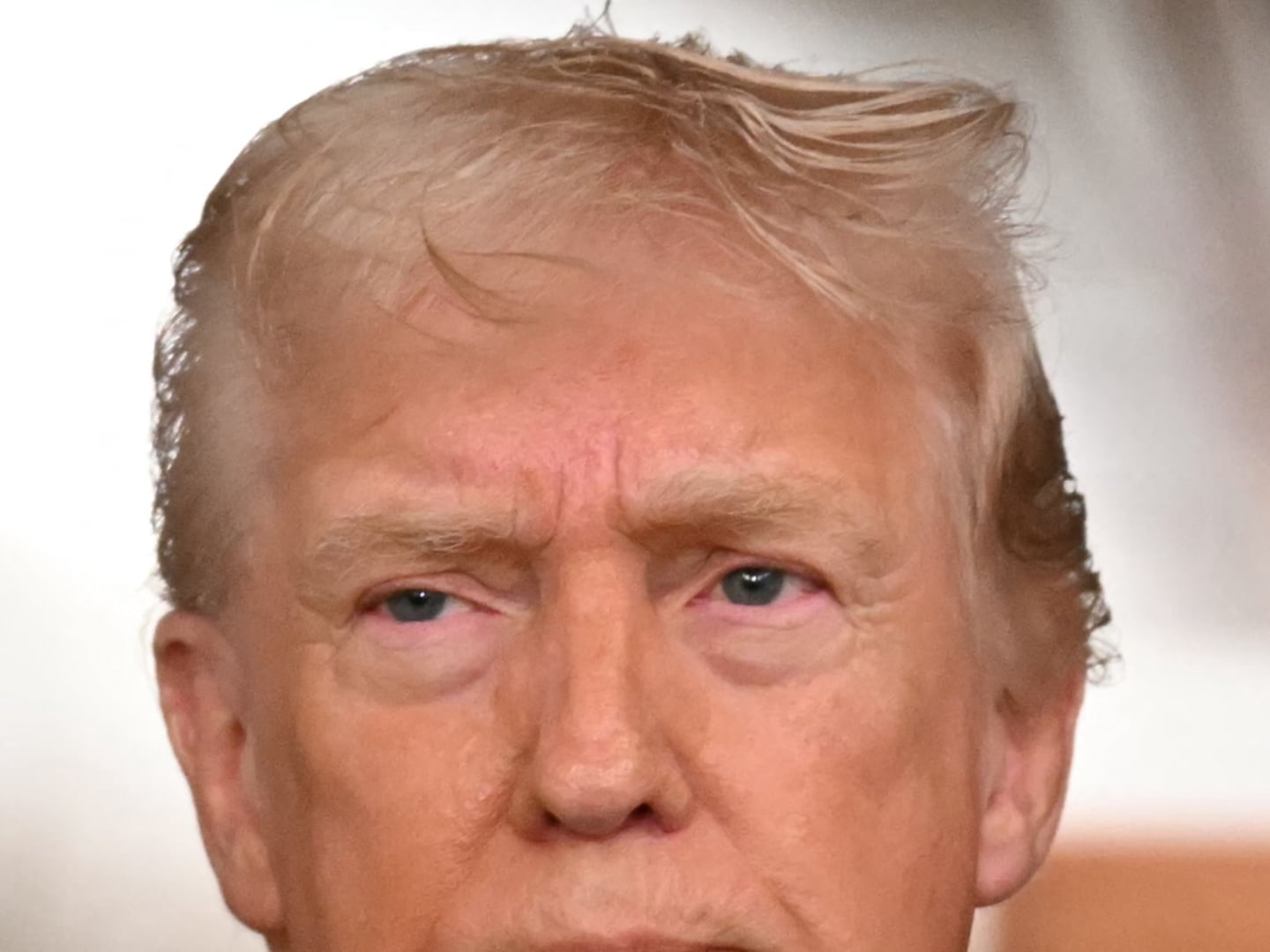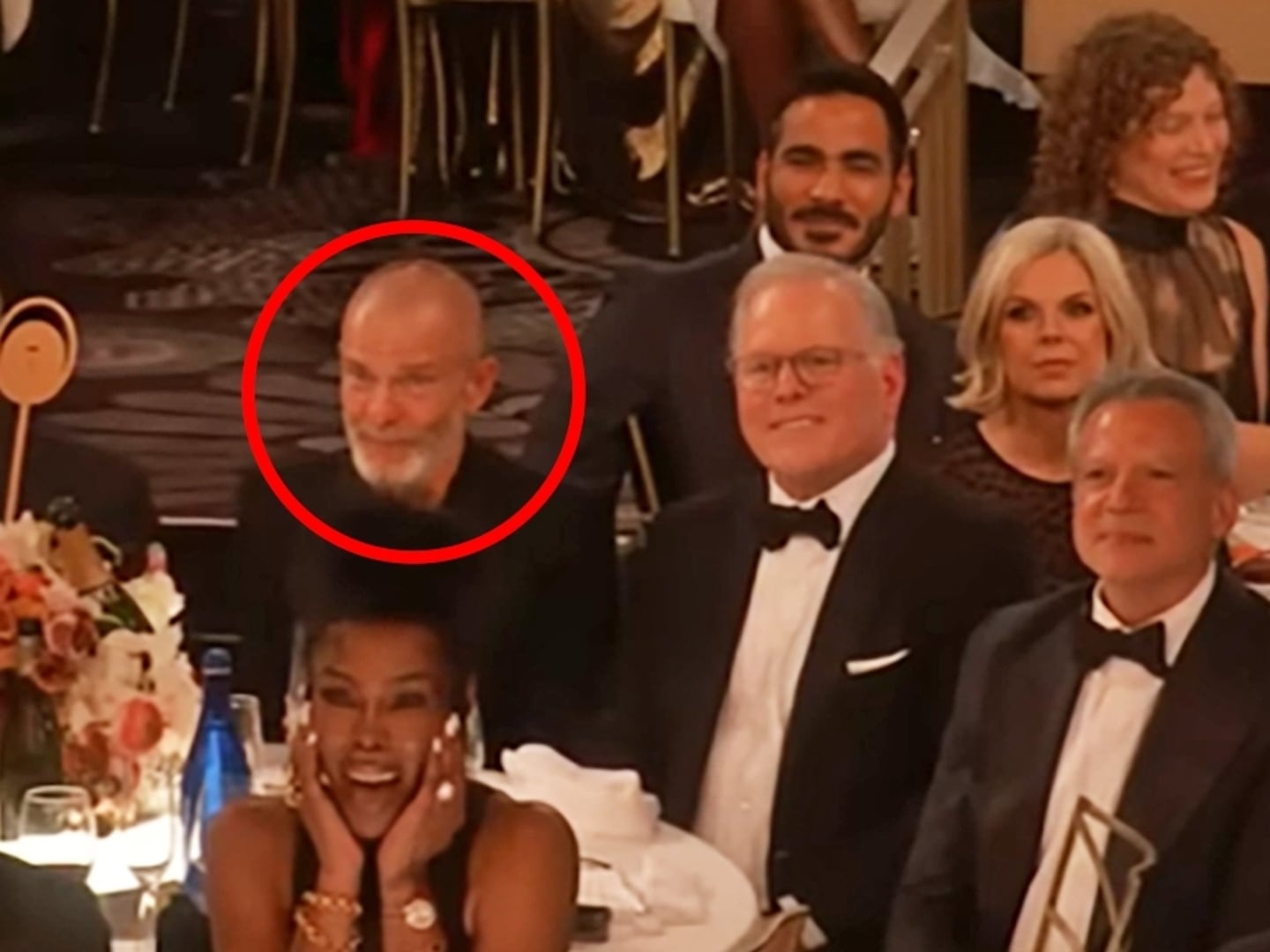At the end of The Dreamer, Dave Chappelle’s newest Netflix stand-up special, my husband turned to me, exasperated, and sighed: “What is he even getting out of this?” “Twenty million dollars,” I responded matter-of-factly, but I knew what he meant. My partner’s concern was not financial gain but rewards of the spiritual kind. After a string of comedy specials mocking trans people, Chappelle drank from the well once more in a listless routine starved for fresh ideas or even remotely interesting ones. As a man who once represented comedy’s avant garde, who suggested bold new directions for where the art form could go, my husband was curious to know: Does Chappelle feel fulfilled by any of this? Is this how he thought he would use his enormous potential? How is he not utterly exhausted?
One of the most depressing aspects of Chappelle’s recent downward spiral is the sense that he’s capable of more. A favorite rejoinder of his supporters is that exercising his freedom of speech makes Chappelle’s comedy inherently valuable, but as someone who supports his constitutional right to say whatever he likes, I wish Chappelle would use it on more valuable exploits. Over its slim 57-minute runtime, The Dreamer elicits all the joy of a musician wearily finishing out his record contract, like Metal Machine Music but less pleasant to listen to. There’s simply nothing new here and very little that feels worthy of the comedian that Chappelle used to be. For those not excited by his umpteenth stab at trans-themed material, he is here to lure you back with dated punchlines about people with disabilities and the sinking of the Titanic, delivered with all the verve of a dial-up modem.
But sadly, one need not ask why Chappelle is even bothering because The Dreamer answers that very question. After a cold open comparing trans people to deranged method actors who always stay in character, he announces that he will no longer be telling anti-trans jokes. “Tonight I’m doing all handicapped jokes,” he says. “Well, they’re not as organized as the gays. And I love punching down.” Chappelle fashions himself a truth teller, someone speaking what others are too afraid to say, but here, he tells on himself. Why is he still going after communities who didn’t ask for this, who simply want to be left alone and to live in peace? Because he can. Because he wants to. Because he likes it.
While at least honest, the admission that Chappelle’s ultimate aim is little more than his own smug satisfaction undercuts a core principle of what he claimed his jokes about trans people were doing. In 2019’s Sticks and Stones, Chappelle came to the defense of fellow stand-up comic Kevin Hart, who had been recently ousted from hosting the Oscars over old homophobic tweets, by claiming that his friend lost his job for “breaking an unwritten and unspoken rule of show business.” “The rule is that no matter what you do in your artistic expression, you are never, ever, allowed to upset the ‘alphabet people,’” he said. “You know who I mean. Those people that took 20 percent of the alphabet for themselves. I’d say the letters, but I don’t want to conjure their anger. Ah, it’s too late now. I’m talking about them Ls and them Bs and them Gs and the Ts.”
Although Chappelle goes onto riff about LeBron James joining the WNBA and how “funny” it would be if he identified as Chinese, his intended point is that LGBTQ+ people occupy a rarefied position in public life. They are not so much immune from critique as they are shielded from it by virtue of their lofty pedestal—unreachable and untouchable. By making light of what a “hilarious predicament” it would be if Chappelle were “born in the wrong body,” he is lowering their throne to sea level, a satirical defenestration. Isn’t that what comedy does, after all? It speaks truth to power, and the insinuation is that LGBTQ+ people, with their Pride parades and Satanic lap dances, have too much of it. (If the reference to Lil Nas X gliding on a stripper pole to hell seems like a nonsequitur, it sadly isn’t; the music video for his controversy-baiting 2021 single “Montero” gets a snarky shout out The Dreamer, a feeble jab years too late.)

A power-mad community, drunk on its own supremacy, may arguably be ripe for parody were it to be real, except that Chappelle has said himself that it isn’t. He was never punching up, he admits. Chappelle was punching down the whole time, and like Walter White owning up to the satisfaction that his misdeeds brought him in the closing episodes of Breaking Bad, Chappelle enjoyed doing so. He enjoyed making millions by continually exploiting the pain of a community that, last year, was targeted with over 500 proposed laws seeking to repeal hard-won civil rights or to prevent some from gaining the protections that others enjoy freely. To date, 21 states limit the decisions that parents of trans kids can make about their children’s health care, and nine have laws on the books telling trans youth or adults where they’re allowed to pee. Just last week, a Florida Republican introduced a bill that, if signed into law, would effectively end all legal recognition for trans people.
One could accuse Chappelle of saying the “quiet part out loud,” a common refrain when people unmask themselves for who they truly are, but modesty was never really all that necessary. For all the outsize control he seems to believe that LGBTQ+ people wield, you wouldn’t know it from his continued success. Chappelle remains one of the most popular comedians in America, able to command a sold-out four-show run at Madison Square Garden. The Closer, in which Chappelle declared himself “team TERF,” a phrase referring to anti-trans extremists, won him a Grammy for Best Comedy Album. In fact, he has won the award four times since his first victory in 2018, then for a special in which he asked of respecting trans people’s pronouns: “To what degree do I have to participate in your self-image?” He has a strong shot of winning a fifth trophy when the Grammys are held again next month, despite literally everything.

As The Dreamer sits comfortably within the Top 10 of Netflix’s daily charts, Chappelle is proving once more that there was no real need to be quiet. He will continue to benefit from saying his feelings as plainly as he desires, on whatever stage he desires. (If that gig weren’t extremely lucrative, he wouldn’t be southeast Ohio’s most influential NIMBY.) In punching down proudly and openly, Chappelle will find an appreciative fanbase that shares his prejudgments and wants them validated. For every stale reenactment of the culture wars in The Dreamer, there was a paying customer laughing out of appreciation or perhaps of a sense of duty; maybe they thought it was funny, or maybe it was just funny because it was ideologically convenient. The specter of cancellation has always been little more than a brand play, a way for comedians to hone in on a particular demographic within their audience or to pivot to a new one.
In The Dreamer’s concluding monologue, Chappelle looks back on his career and how far he’s come, marveling at his achievements. He suggests that his life today is precisely what he manifested for himself, with the help of a quote from Henry David Thoreau (who would very much like to be excluded from this narrative): “If one advances confidently in the direction of his dreams, and endeavors to live the life which he has imagined, he will meet with a success unexpected in common hours.” A few years ago, I would have rejected that assertion, suggesting that the comic he was 20 years ago would have been appalled at the hollow, Chappelle-shaped husk he is now. This couldn’t be what he wanted all along, right? But for the myriad failures of The Dreamer, its reactionary monomania and crushing lack of imagination, it did one thing adequately. It convinced me that I should believe Chappelle when he tells me who he is.


